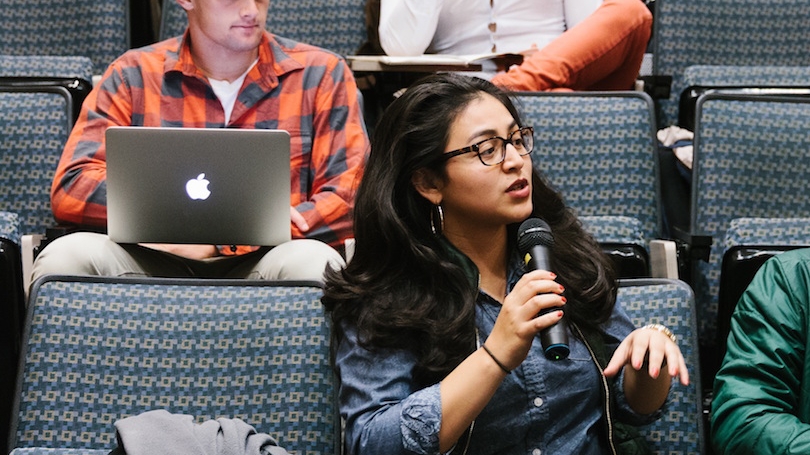
Menu
- Public Policy
- Leadership
- Funding
- News & Events
- About the Center
Back to Top Nav
Back to Top Nav
Back to Top Nav
Back to Top Nav
Does Latin America matter to the United States in today’s world? Considering the amount of talk during the U.S. presidential campaign about immigration and specifically Latin American immigrants living in the U.S., it does.
How have transformative changes over recent decades and especially in the 21st century – within Latin America, in the global context, and in the U.S. itself – changed the nature of U.S.-Latin American relations? How can the U.S. best advance its legitimate interests in the Americas today? What changes in approach, policies and style are required?
Abraham Lowenthal, an internationally recognized authority on Latin America, the Pacific Rim and broader international affairs, addressed these questions during his public talk, “Rethinking U.S.-Latin American Relations in an Age of Transformations.” He discussed U.S. relations with Mexico, Brazil, Cuba, Venezuela, the Andrean countries, the Southern Cone, and the “near abroad” of Central American and the Caribbean, as well as the key issues of contemporary inter-American relations.
Abraham F. Lowenthal is Professor Emeritus of International Relations at the University of Southern California and President Emeritus of the Pacific Council on International Policy. He was the founding director of both the Latin American Program of the Woodrow Wilson International Center for Scholars and of the Inter-American Dialogue. He served as a Ford Foundation official in Latin America, as director of studies at the Council on Foreign Relations, and as a senior fellow at the Brookings Institution, as well as on numerous editorial and governance boards. His AB, MPA, and PhD are all from Harvard University.
He is the author of several books and has edited or co-edited 15 volumes including Democratic Transitions: Conversations with World Leaders ( and Kalman Silvert: Engaging Latin America, Building Democracy. He has published more than one hundred book chapters and articles, including eight in Foreign Affairs, six in Foreign Policy, and multiple articles in each of the major Latin American journals on international affairs in Argentina, Brazil, Chile and Mexico. Dr. Lowenthal’s work has been published in Spanish, Portuguese, French, German, Dutch, Italian, Arabic, Chinese, Japanese, and Burmese.
The views and opinions expressed and any materials presented during a public program are the speaker’s own and do not necessarily represent the views and opinions of the Rockefeller Center or constitute an endorsement by the Center.